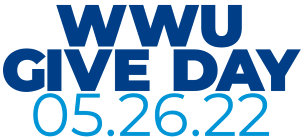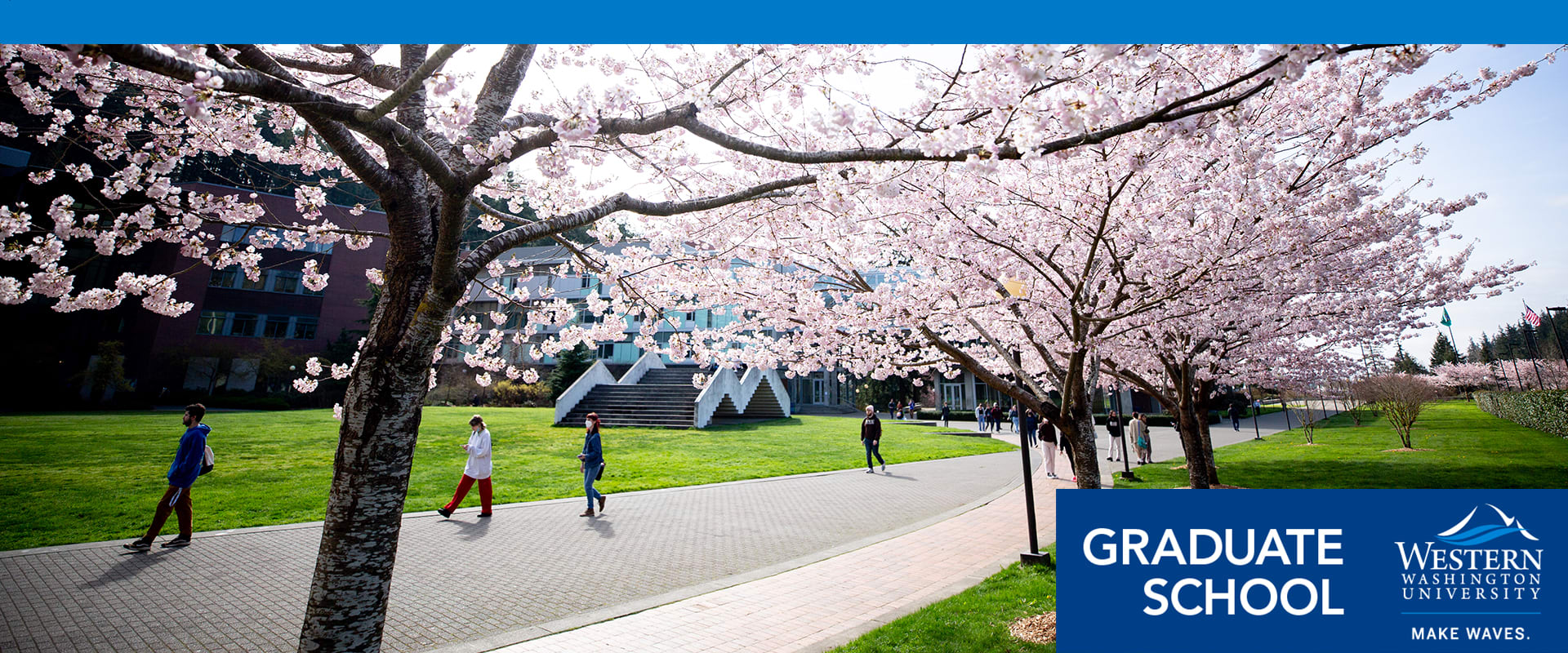
Support Graduate Research Today for the Promise of a Better Tomorrow
Gifts supporting graduate research expand educational and professional opportunities for students in all disciplines and are critical for our future. Graduate students drive original research and discovery, deepen our understanding, and inspire, teach, and mentor our undergraduates.
Western needs your help to ensure these bright scholars have the funding they need to thrive, grow as scholars, and complete their research.
The first $1000 in gifts to the Graduate School on Give Day will be generously matched dollar for dollar by David and Bahareh Patrick.
Two Ways to Give
1. The Graduate Studies Fund
Gifts to the Graduate School Fund directly support graduate student research, field experiences, and professional development opportunities by funding travel, conference registration and fees, and materials purchases.
2. Ross Travel Grant
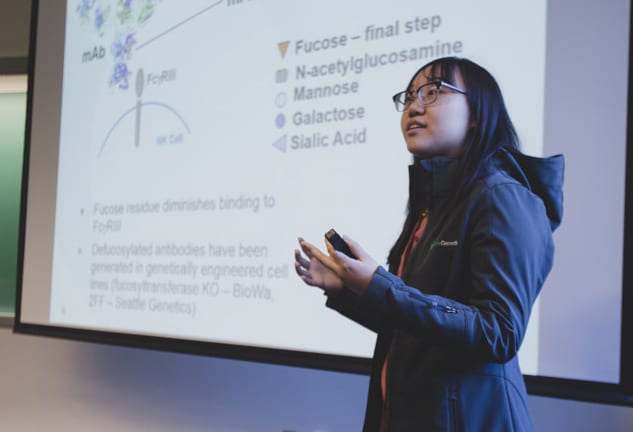 The Dean Ross Endowment established by Dr. J. Alan & Dorothy C. Ross supports graduate student travel enabling scholars to present their work at professional venues, develop professional connections, and share, discuss and debate new ideas in their scholarly communities.
The Dean Ross Endowment established by Dr. J. Alan & Dorothy C. Ross supports graduate student travel enabling scholars to present their work at professional venues, develop professional connections, and share, discuss and debate new ideas in their scholarly communities.
The Dean Ross Endowment allows Western graduate students to present papers at professional meetings and conferences, display works of art at national and international exhibitions, and to perform, direct or produce within professional performing arts venues. Such experiences are vital opportunities that often mark important milestones in their professional development.
Meet the Graduate Students Who Benefit from Your Generosity
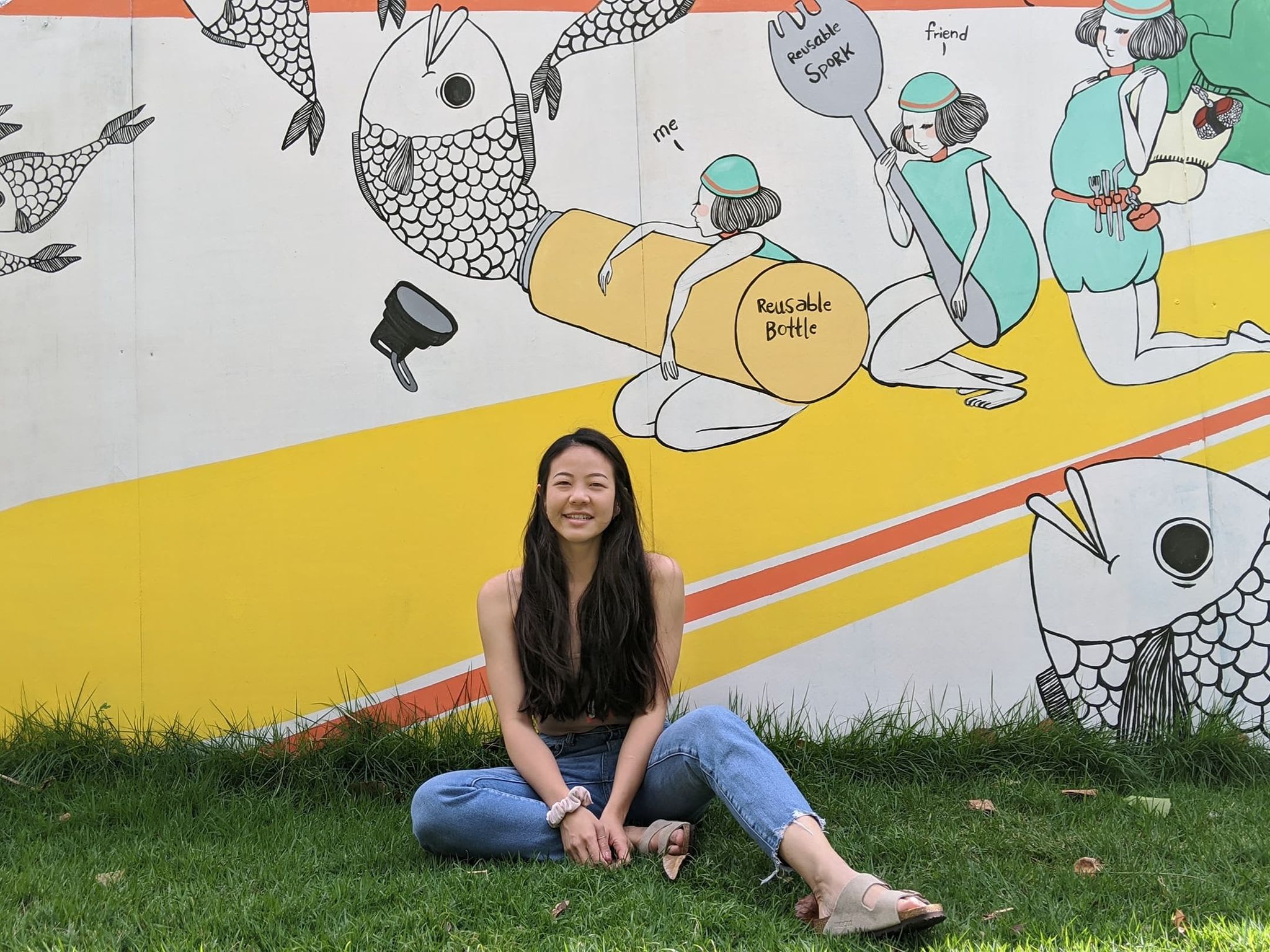 LiAn Noonan, MS Candidate in Biology LiAn Noonan (she/her) is a first-year grad student of Biology who studies endemic alpine flora in the Sierra Nevada and Southern Cascades. Noonan is a recipient of the Fraser & Hodgson Family Fellowship and the WWU Graduate Research Award for her thesis project entitled, “Continuity of Floristics in the Alpine Zone of the Cascade-Sierran Axis: Is there a Continuum?” Noonan is interested in whether flora from the Sierra Nevada have the potential to migrate in response to climate change.
LiAn Noonan, MS Candidate in Biology LiAn Noonan (she/her) is a first-year grad student of Biology who studies endemic alpine flora in the Sierra Nevada and Southern Cascades. Noonan is a recipient of the Fraser & Hodgson Family Fellowship and the WWU Graduate Research Award for her thesis project entitled, “Continuity of Floristics in the Alpine Zone of the Cascade-Sierran Axis: Is there a Continuum?” Noonan is interested in whether flora from the Sierra Nevada have the potential to migrate in response to climate change.
At the heart of Noonan’s research is an interest in conservation efforts on behalf of alpine endemic flora. Noonan says understanding flora’s capability to migrate is crucial for conservation efforts because they’re not capable of adapting in time to survive climate fluctuations. So, identifying potential regions of conservational priority for these endemic species is a big step in the right direction.
Noonan hopes to continue her work in conservation by extending her research with a follow-up study on dispersal barriers. Her faculty advisors are Instructor Mike Williams and Dr. Ben Miner, and Dr. Matthew Zinkgraf.
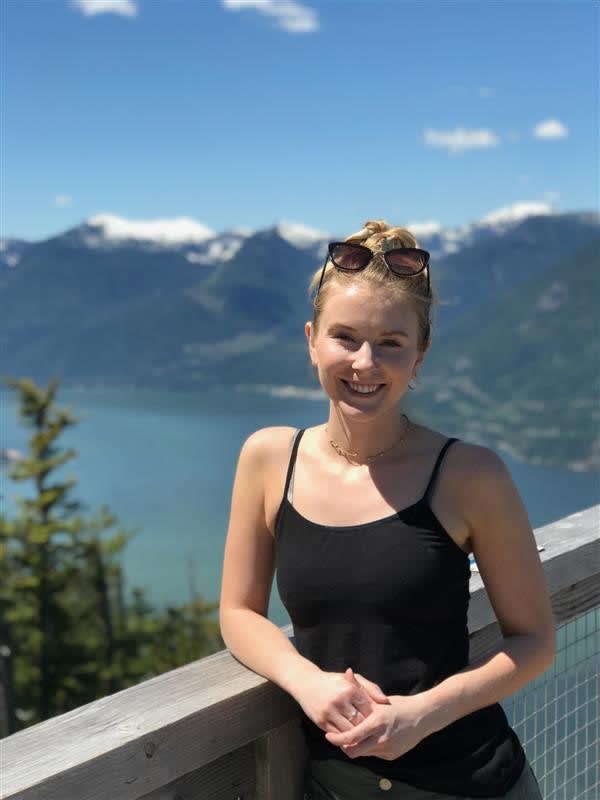 Hannah Hennig, MS Candidate in Chemistry
Hannah Hennig, MS Candidate in ChemistryHannah Hennig (she/her) is a second-year graduate student of chemistry who focuses on the development and characterization of photothermal catalysts. Specifically, Hennig’s research is centered around a reaction that satisfies a critical step in the production of solar fuels: optimizing the light-to-chemical energy efficiency of catalytic systems used in the hydrogenation of carbon dioxide (CO2).
Hennig is a recipient of both the WWU Graduate Research Award and the WWU Washington Space Grant Consortium Summer Research Award in 2021—a 10-week summer fellowship funded by NASA—for her thesis project, “Nickel Phosphide Photocatalyst Development for CO2-Derived Solar Fuels.”
During her fellowship last summer, Hennig’s research was focused on studying different combinations of catalyst and support materials to gain insight on their respective roles in determining photothermal catalytic properties. She will present her findings this spring at the American Chemical Society (ACS) Conference and WWU’s Scholar’s week.
Hennig is a member of the Bussell Group, a surface and materials chemistry-focused research group supervised by WWU Professor of Chemistry, Dr. Mark Bussell. Hennig says that Dr. Bussell fosters a collaborative work environment rooted in real-world applications and has been an excellent mentor in both research and writing. Hennig also recently received the WWU Ross Travel Grant, which supports graduate student travel for professional opportunities. Hennig says, “It’s an awesome program that will cover the cost of airfare to the ACS conference in San Diego!”
Between her undergraduate and graduate studies, Hennig worked in environmental analytical laboratories and developed a love for instrumentation and a deep appreciation for what she calls “the nitty-gritty parts of analytical work.” After graduating, she plans to return to industry with a focus on characterization and instrumental analysis.
 Peter Miterko, MA in Anthropology, 2017
Peter Miterko, MA in Anthropology, 2017Peter Miterko (he/him) specialized in participatory action research with a focus on permanent supportive housing.
Miterko credits Dr. Sean Bruna, WWU Professor of Anthropology, with much of his growth and success in his graduate research. Bruna’s Medical Anthropology Lab was an important space for Miterko, who says, “I want to stress that Sean really helped me get through the ups and downs in my research—he pulled me through.” During his time at WWU, Miterko notes that “really everybody in the anthropology department was very accessible and supportive.”
One method Miterko used in his thesis research is photovoice, an innovative, multimodal approach to qualitative research that uses photography to promote positive social change. Miterko conducted semi-structured interviews, asking participants to take photos and tell stories about those photos to show their experience and identify issues that are most important to them. Miterko gathered the participants' photography and stories to use as data, but the photos were also displayed in a downtown Bellingham gallery, then later in the permanent supportive housing program where Miterko’s research was originally conducted.
Miterko also says his MA in anthropology made him industry-ready, and he transitioned into working locally in homelessness and housing after graduation. He now works for Skagit County Health Department on their housing team, which has fortunately been able to procure extra funding for housing projects during the COVID-19 pandemic. For example, one non-profit he works with, Skagit Connections, recently procured a mobile shower for individuals who don’t have access to that resource.
Not only has Miterko's time in grad school at WWU been practical in terms of his employability, but his research has received a lot of attention as well. In March 2020, the journal Housing and Society published an article from Miterko's thesis entitled “Resident identified strengths and challenges of project-based permanent supportive housing program implementation in a small metropolitan county.” A second article from his thesis, "Reframing sense of community with photovoice: perspectives from residents of a permanent supportive housing program who have experienced chronic homelessness," was just published in the Journal of Community Practice.
Like many social sciences, anthropology serves as a snapshot into the human experience. Making anthropology relevant and practical has been part of Miterko’s mission. In his current role, he supports local homeless and housing service providers in Skagit County. Most recently, he's been a part of the county’s emergency response to flooding in the area.
When you support the Graduate School,
your gift matters now and continues to
give for generations to come.
